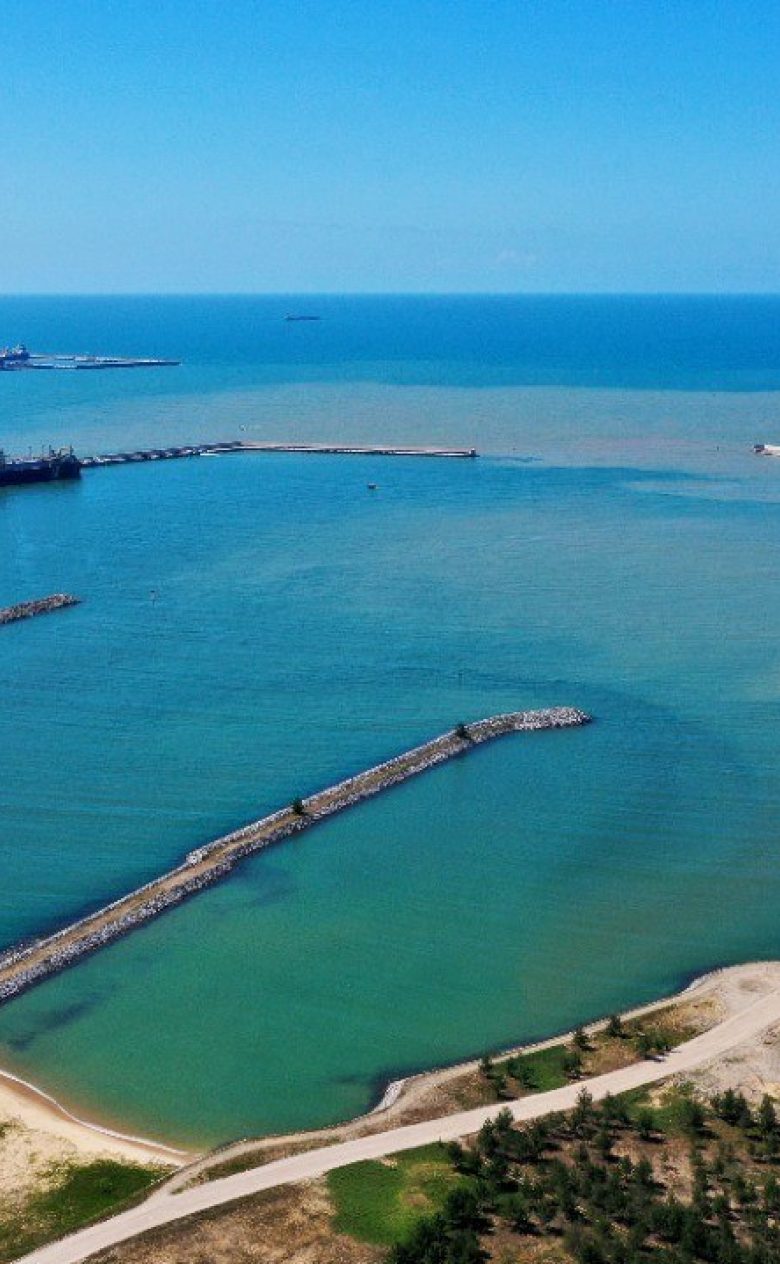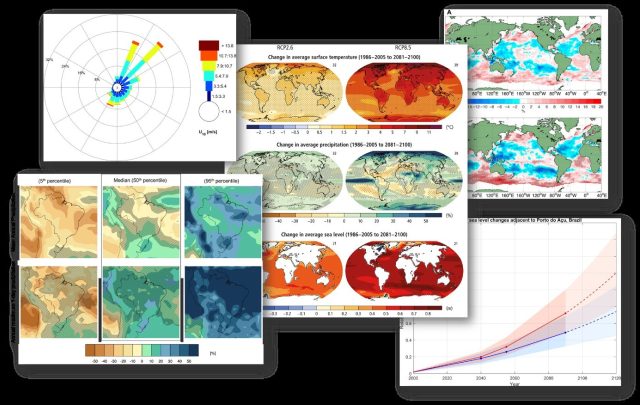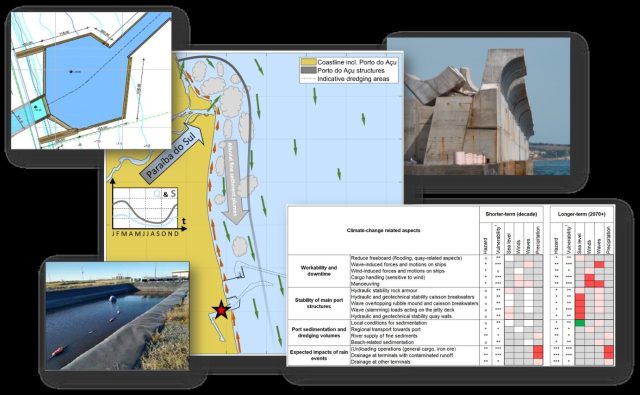Porto do Açu – Impact of climate change on port operations
In 2021 Deltares conducted a study to assess potential impacts of climate change effects on the operations and infrastructure of Porto do Açu (Brazil), including changing sea level, winds, waves and precipitation regimes. The assessments were divided into two consecutive phases: 1) determine the current climate environmental conditions and define a projection of possible future scenarios (sea level, winds, waves and precipitation); and 2) estimate the risks associated with key port operations under future scenarios.

In the first phase of the study, the definition of present and future climate conditions (sea level, winds, waves and local precipitation) at the Port were assessed. The characterization of the present regimes (i.e., mean and extreme) are based on observed patterns and trends over recent years to decades. Future conditions were evaluated through a desktop study based on the IPCC reports (AR5) at global and regional scales, literature review and expert judgement. The assessed time horizons extend up to 100 years from now and consider both the intermediate and the worst-case climate change scenarios (RCP 4.5 and 8.5).

Especially for longer timeframes, climate projections have wide uncertainty bands. Future mitigation measures on greenhouse gases emissions to be taken by society are unknown by definition, which also adds to uncertainty bands on longer-term projections. The reported uncertainty bands were incorporated in the vulnerability assessments of Port’s infrastructure and operations, as part of the second phase of the study.
Within the study Phase 2, the quantified changing conditions were interpreted to determine potential impacts/risks to port operations, port structures (i.e., breakwaters, piers and berths/quays), sedimentation and maintenance dredging, and adverse effects of intense rainfall events. The interpretations have resulted in topic-specific sets of conclusions and recommendations.

In general, the changes projected for the port location are smaller than global averages. This means that the port is at a favorable location with respect to – presently expected – climate change effects. Following these projections, port operations are not expected to be critically influenced by changes in ambient conditions within the next decades. Towards the end of the century, the projected changes in ambient conditions may affect port operations. Nevertheless, the uncertainty bands in longer-term projections are typically wider, so climate projections should be re-evaluated in the future (within 10 to 20 years) to incorporate possible port expansions, operational changes, and verify trends and developments.
With the recommended actions the port is expected to be able to maintain and improve its operability and performance on the short-term, while remaining vigilant and prepared for potential changes in ambient conditions in the future.


